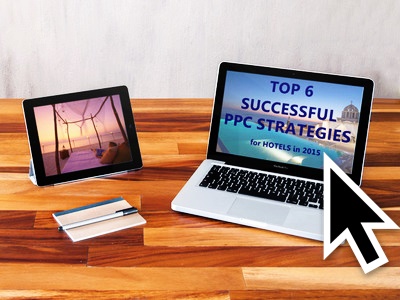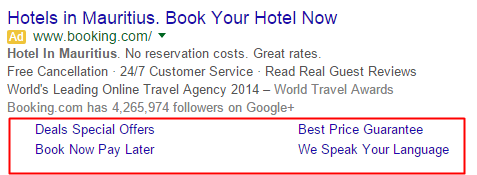Is Pay-Per-Click (PPC) advertising part of your hotel marketing plan? PPC, also known as paid search or search engine marketing can attract more potential travellers to your website and convert the traffic into instant online booking! Even if you don’t have it active all the time, it can be a powerful tool to market to targeted audience whenever the need arises.
-
Focus on Seasonality
The main factor that impacts the hotel industry when planning a PPC campaign is seasonality. If you are an international hotel, it will be best to have separate campaigns for each destination as weather and holiday seasons differ from place to place. Start by collecting all the data so you can get a better insight of the time when certain destinations sell most and when the sales start to decline. Are there specific days when you have more vacant place to fill in? During the off-peak seasons, you can plan special campaigns like ‘Last minute offer – Book tonight for $69 only’ to create a spike in the business. PPC is a great way to quickly fill up rooms.
-
Allocate your budget wisely
When you are deciding on your budget, it all depends on what you can afford. But to start off, it is best to equally distribute your budget across all campaigns to see what works and what does not. After analysing the conversions in few weeks’ time, the keywords will give you an indication about where you can invest the majority of your budget. Limited budget? No worries. A wise PPC campaign step is to continuously optimise the campaigns by focusing on the proven performer; this will make be more profitable.
-
Ad Scheduling
One ‘hidden’ feature of PPC campaigns is the Ad Scheduling option. This is also an effective option for you if your hotel has a limited budget, so you can focus on when your ads perform best. Ad Scheduling for PPC campaigns can be broken down by days or even hour. Some hotels may not have enough data to understand when travellers surf more. For them, it would be more feasible to start by running the ads all time so they can use the PPC campaign analytics to understand when the campaigns convert and when they don’t.
-
Geo-targeting
Another extremely effective ‘secret’ feature of PPC advertising is that it can show your ads to people in your targeted location along with people searching for and viewing pages about your targeted location. How cool is that? You just have to make sure that you choose the correct option:
For example: You are running a campaign for hotel in Croydon, London. If someone looks for “Hotels in Croydon”, your ad could be displayed if your geo-target is United Kingdom. But however, if you had a geo-target for London only, your ad would show only for people looking for hotels in London. Always ensure you choose the correct option.
5. Ad Extensions
Ad extensions are extra pieces of relevant information such as your address, phone number or specific website links to help make the adverts more appealing to the potential guest. For hotels, the best practice can be to include call to action links like ‘Book Now’, phone number or special offers. For example:
6. Landing Pages
Once a searcher has clicked on your advert, you need to make sure that he is directed to the most relevant landing page for that search. It is not good to send someone to a Christmas hotel package if they are looking for Easter hotel package, your customer will exit and click on your competitor’s advert right-away! The goal of this landing page is to make your potential customer take action immediately, so it has to be a good experience for them. Some key things to include on a hotel landing page:
- Star ratings
- Customer reviews
- Graphics – Photos and Videos
- Credit Card trust symbol
- Strong call to action – ‘Book Now’
- Contact details – Phone number (with country code), Location and Email Address
To sum up, PPC is a quick way to share your marketing message or last-minute offers to prospective consumers. You also need to make sure that your website is mobile-friendly as many travellers surf from mobiles. Maximise your potential reach!





